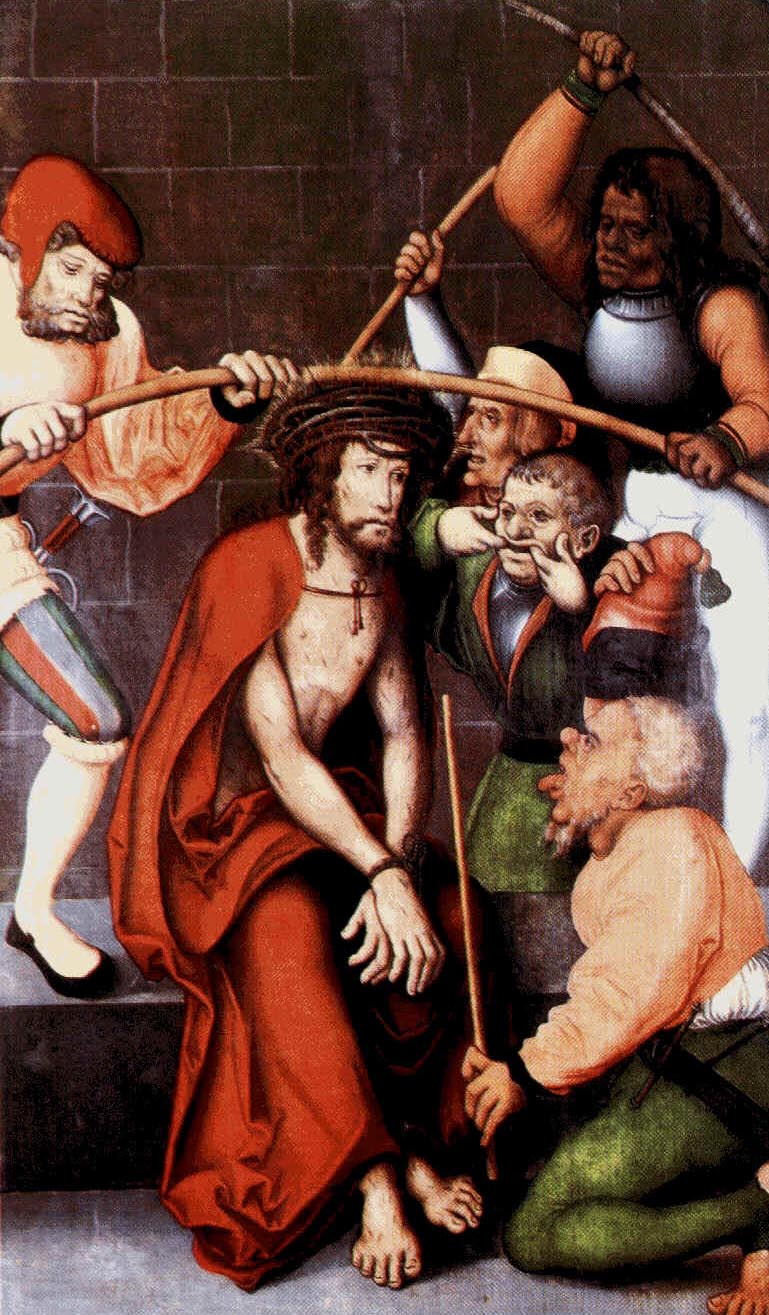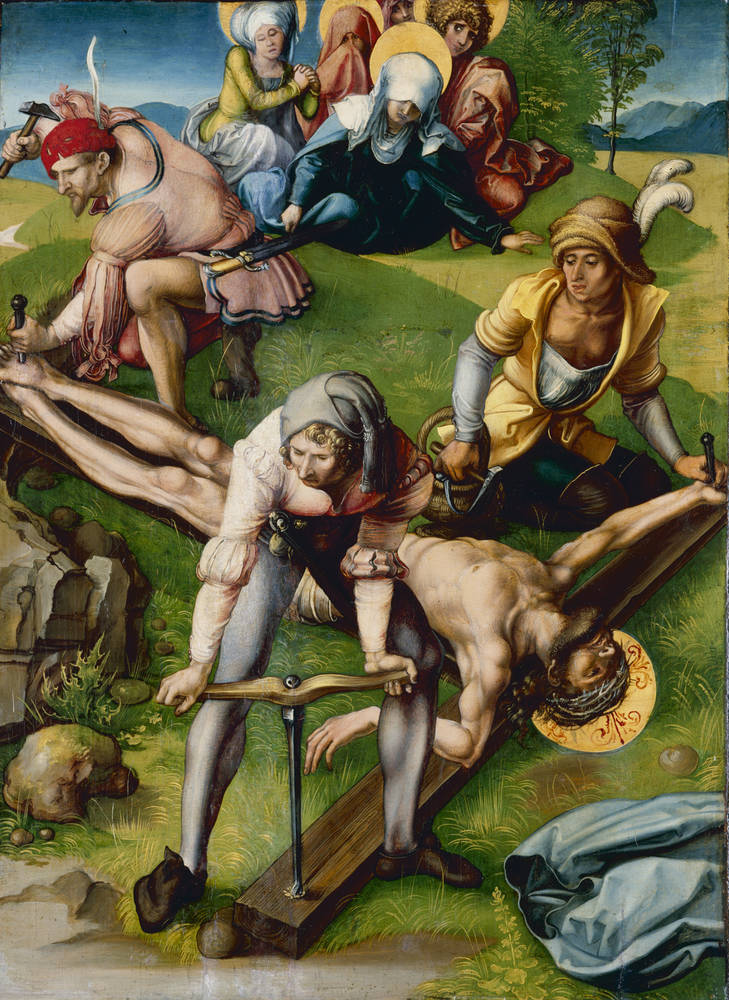 |
| The Garden of Gethsemane - without the choirs. |
Technically, it should be St. John's Passion day. In the earliest historical beginnings, the passion as a musical form morphed out of the liturgical-drama and chant traditions - gradually, the church realized they could have different singers chant the passion reading instead of just one. With the new polyphonic innovation towards the 1400s, composers of these settings added a "turba" or crowd part vs. the single characters, and some versions even did away with soloists entirely.
Bach's setting of the St. Matthew Passion (one of likely five he composed, three of which have been lost) is an oratorio passion. Choruses and Lenten chorales for double choir - with another in ripieno - alternate with narration by the tenor evangelist, arias reflecting the thoughts of both the characters as well as the listening Christian, and movements that mix both, sometimes with bursts of turba.
This is the part of BWV 244 about which I am most "passionate" - No. 27 (a and b). A soprano and alto both mourn, "Thus now my Jesus is taken away," against the ticking, almost eerie oboe and strings. Where did Jesus go?
Also, playing the bass line is the viola. Where did the continuo go?
Hmm.
While this despairing duet takes place, the two other full choirs pop in angrily to shout "Leave Him, stop, bind Him not!" but the two weepers go on as if they have shut the protesters out. There is nothing left to do, and they end the movement with "He is bound."
 |
| Cranach the Elder. |
Immediately (and I mean immediately!), the basses trample over them with theatrical vigor, layered upon by each section in turn. "Has the lightning and thunder stopped? Fiery hell, open up and swallow them!" Oh, and many other fun-to-sing German verbs are thrown in, too. Of all the exciting and most stage-worthy choral moments, this one takes the cake.
What I love about Bach is that he is never afraid to acknowledge his angsty-German side. Within a split second, his music can shift from despair about Jesus' capture to appall and rage, but it all serves the purpose of the Gospel message at the proper time.

A blessed Holy Week to you all.
Translation: http://emmanuelmusic.org/notes_translations/translations_cantata/t_bwv244.htm
Score and music: https://www.youtube.com/results?search_query=so+ist+mein+jesus+nun+gefangen
No comments:
Post a Comment